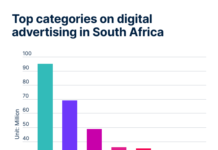For brands to achieve maximum online visibility of their products and services, they need to optimise their website and refine and implement an effective search engine optimisation (SEO) strategy for their visual content. In addition, an adequate SEO strategy can ensure a brand’s website is not affected by any of Google’s 500 to 600 search algorithm updates each year.
For many internet users, buying a new product or service starts with an online search query. In fact, 46% of product searches begin on Google. After a search query, search engines return the best possible search results.
‘Search engines update their algorithms often to ensure they deliver the best results to a user query. These updates should encourage brands to stay on top of their SEO to earn a spot on search results. Previously, SEO’s key focus was on words, today, brands should also focus on optimising visual content on their websites,’ said Desirée Gullan, co-founder and Executive Creative Director of G&G Digital.
‘Internet users are increasingly searching the web using image and video search. At the same time, brands are becoming more visual in their storytelling. To ensure better search rankings, user engagement and visibility, brands should optimise their visual assets to gain a prime position in search query results. Optimising visual elements can also drive website traffic and increase conversions,’ Gullan added.
Four things you should know about enhancing images and videos on your platform:
Tell captivating stories using images and videos
A Microsoft study indicates that the human attention span is only eight seconds.3 That does not give brands a lot of time to make an impact on their audience. High-quality and original visual content can make it easier for the audience to understand what a brand is saying, even if they’re not reading the article.
Optimise website images and videos
Use images and videos that are relevant to your brand. Make sure images load quickly so as not to frustrate visitors. Label the images and videos correctly with appropriate and descriptive keywords for search engine crawlers to recognise them, their context and return your site in relevant search query results. Correct labelling should also include using appropriate alt attributes, title tags, and image names — this will better help search engines index your elements and help the visually impaired during their online searches. Try not to use stock images for your products and services. Stock images are seen as multiple images, and Google won’t recognise them in its image search rankings. These insights are based on this article.
Include site maps
Site maps play an essential role in SEO, as they can make a brand’s products and services more visible in search query results. A site map is a file that should list all web pages and elements on the website. This file will help search engines recognise the content on your site, making content more visible on search results. These insights are based on this article.
Add structured data
Search engines support structured data for product images and videos. Structured data is standardised information a brand can add to their code about specific images and videos on a page. For example, a brand can add information about a product price, availability and reviews in the code, which will make it easier for search engines to serve the specific website page as rich results. Google’s rich results include showing search results as knowledge boxes, carousels and images. However, make sure your structured data is within the limits of search engine requirements. These insights are based on this article.
Measure a site’s SEO performance
Once you have enhanced your images and videos, make sure to track and measure your SEO success. Several monitoring systems are available to measure the progress of visual SEO optimisation. These tools give better insights into the type of search queries and impressions on your website and you can use these insights to improve SEO for your visual elements.
As videos and images gain more online traction, brands should understand their role in ensuring their visual content is relevant, effective and searchable on search engines. Also, keep up with the latest SEO trends to keep your site competitive and engaging.










